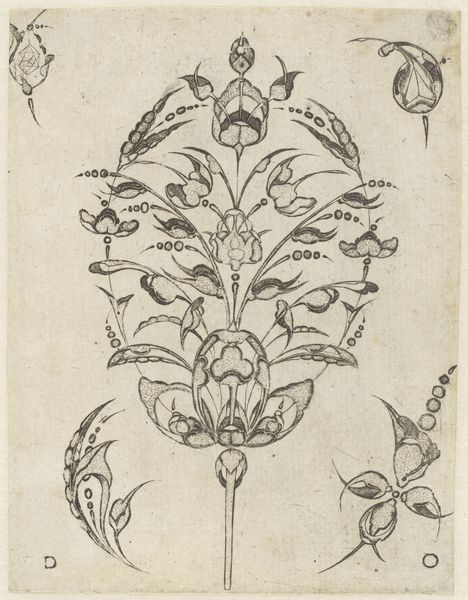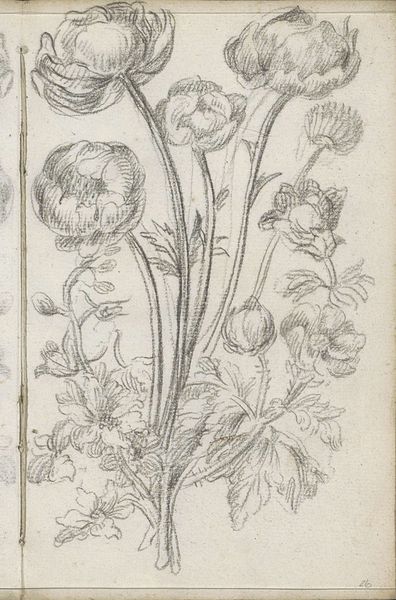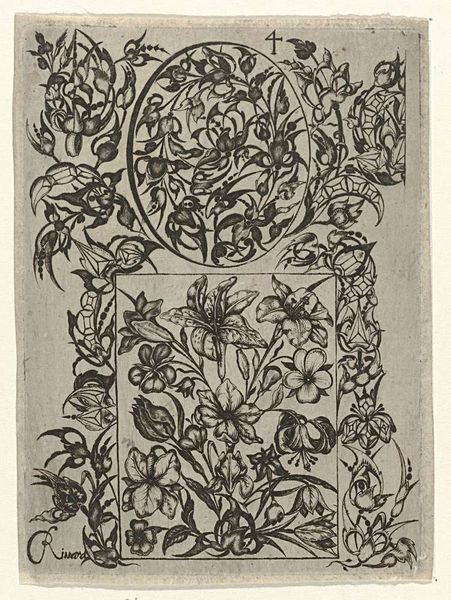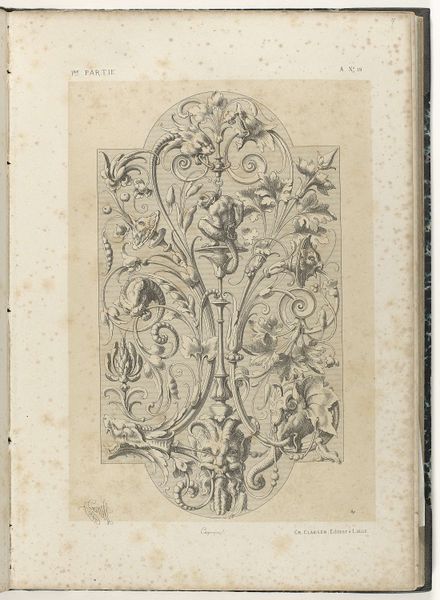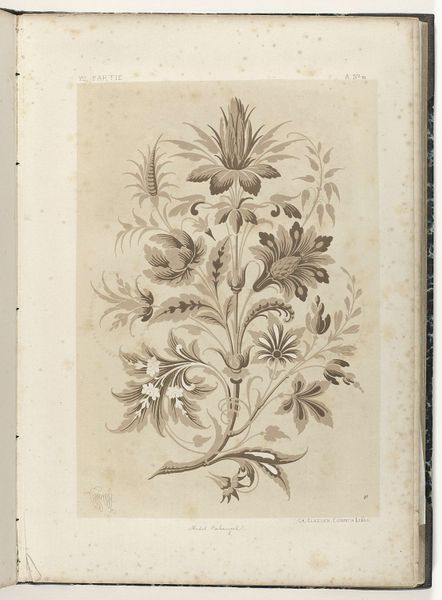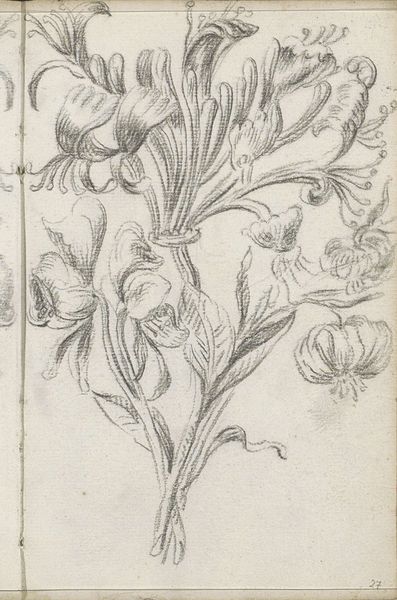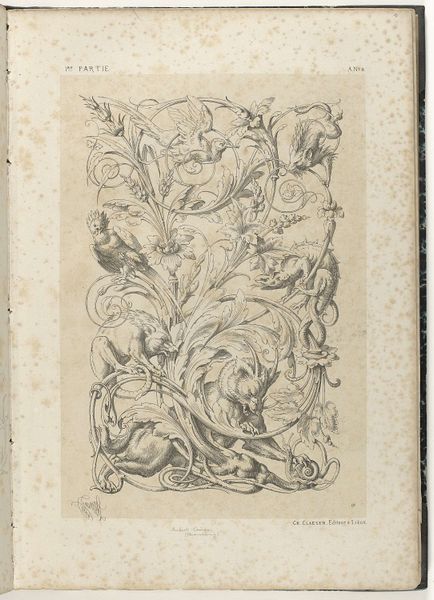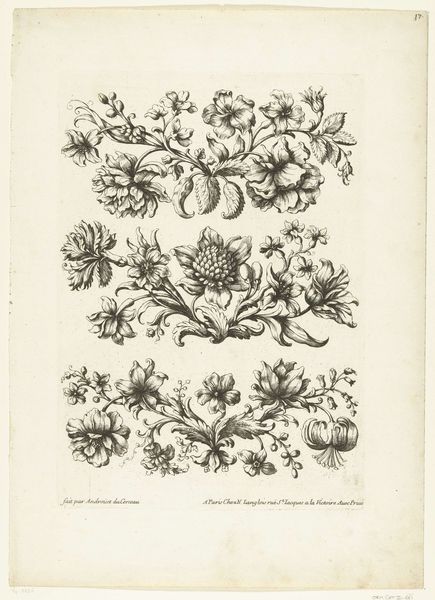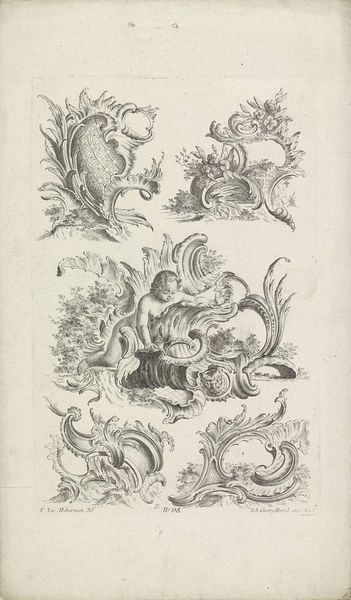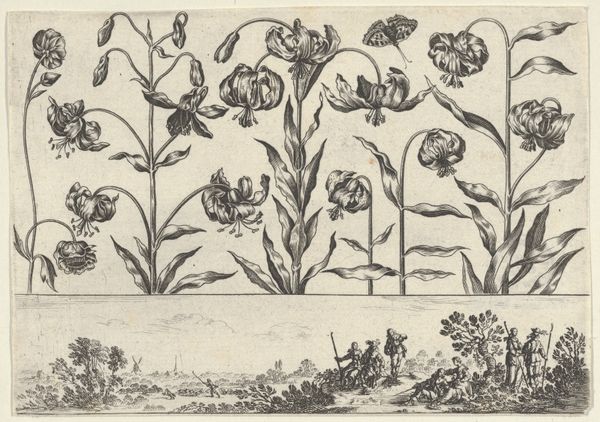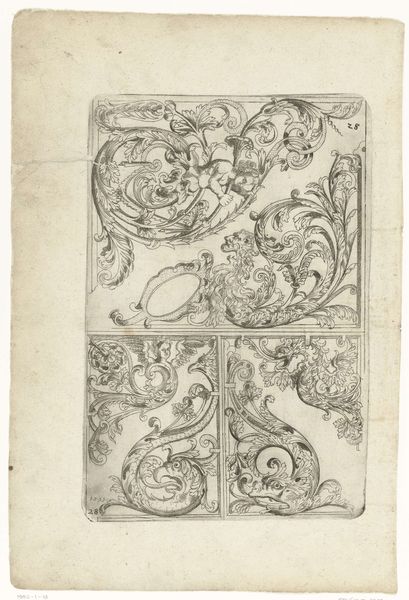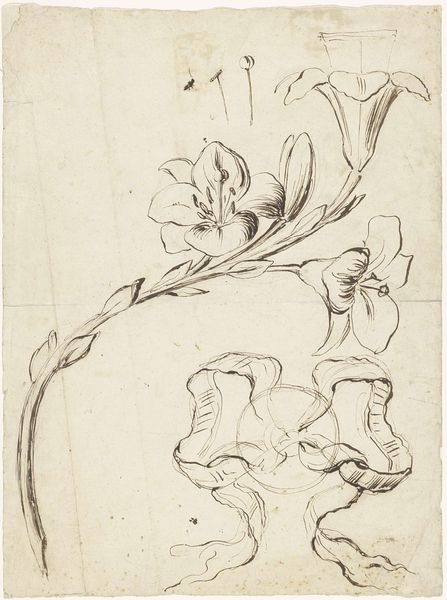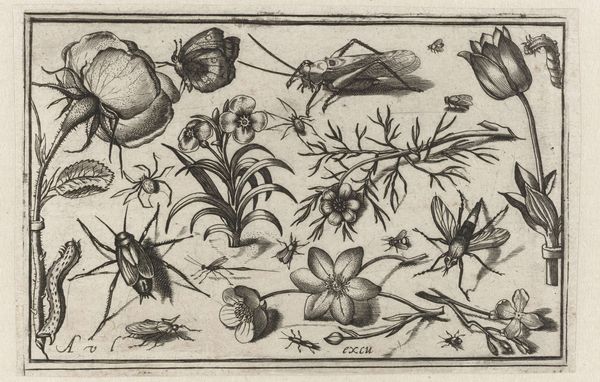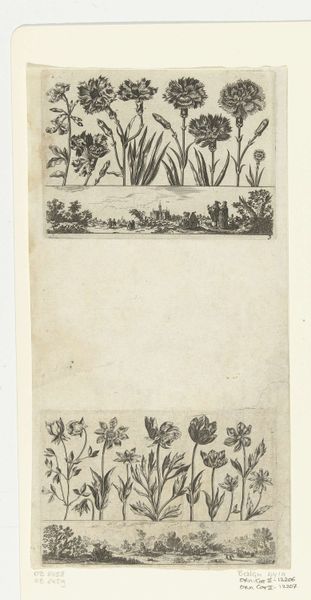
print, engraving
# print
#
line
#
engraving
Dimensions: height 201 mm, width 165 mm
Copyright: Rijks Museum: Open Domain
This print, called "Ranken met bloemen" or "Tendrils with Flowers", was made around 1639 by an anonymous artist using etching. Look closely and you’ll see the characteristic fine lines achieved by this printmaking process. The artist would have coated a metal plate with a waxy substance, drawn the design into it with a needle, and then bathed the plate in acid. The acid bites into the exposed lines, creating grooves that hold the ink. Etching enabled the relatively quick and easy reproduction of images. This was crucial for disseminating designs to a broad audience, and the relatively low cost of production democratized the ownership of images. Consider the labor involved in creating the original design, cutting the plate, and printing each impression. While the artist remains unknown, their skill and attention to detail speak volumes about the value placed on craftsmanship in the 17th century. This print, with its delicate lines and intricate details, bridges the gap between art and craft, inviting us to appreciate the artistry inherent in reproductive processes.
Comments
No comments
Be the first to comment and join the conversation on the ultimate creative platform.
